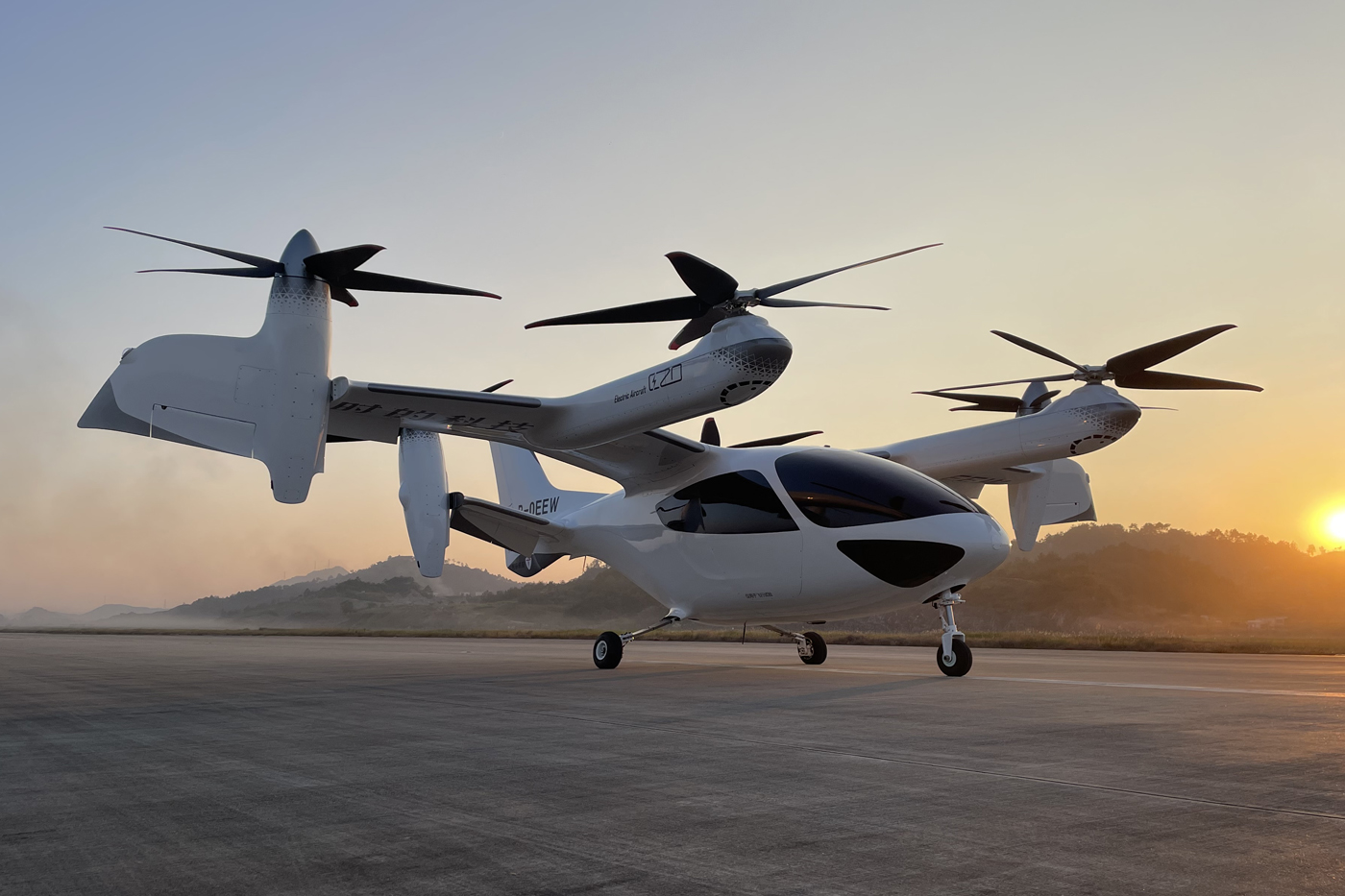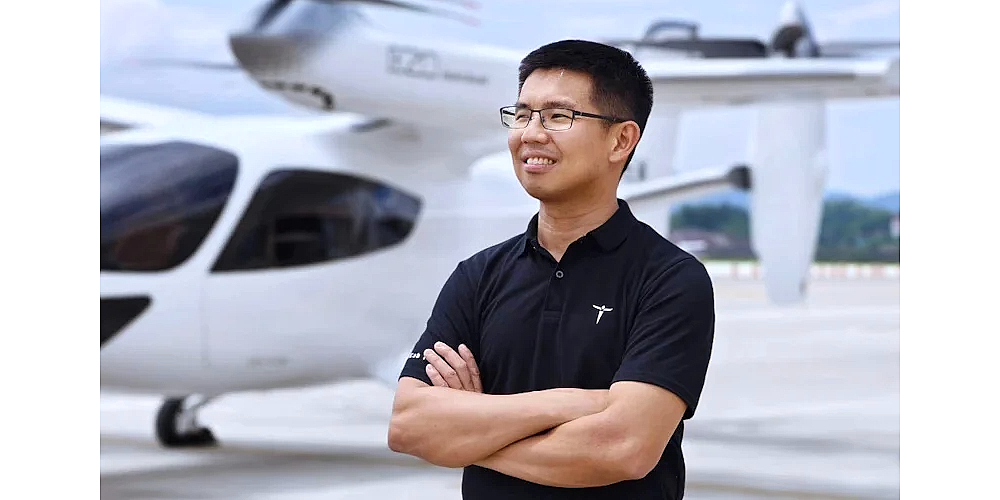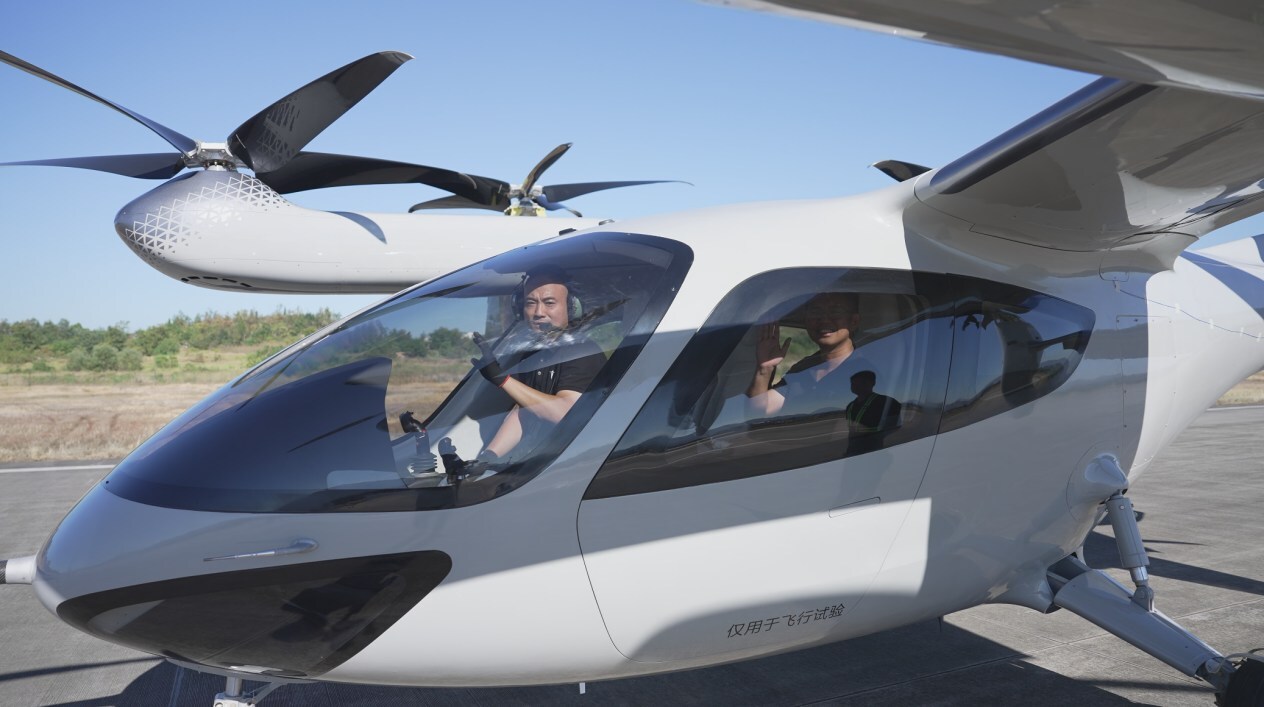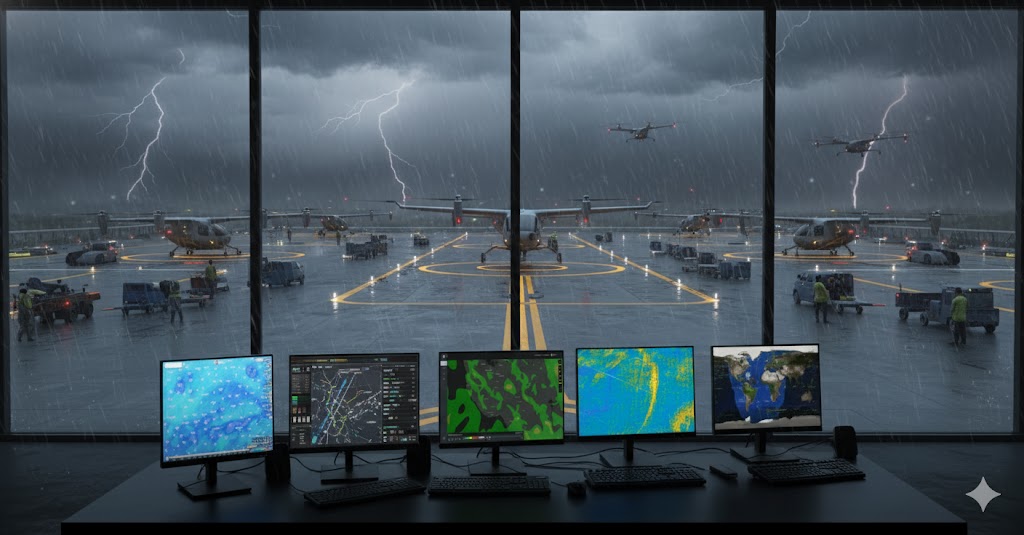TCab Tech’s new, large manufacturing facility in Wuhu City represents a significant milestone for China’s low-altitude economy and demonstrates how strategic industrial planning can help regional markets lead in emerging technologies. The facility, which broke ground on August 8, 2025, shows that China’s electric vertical takeoff and landing industry has advanced from experimental flights to full-scale production.
The new manufacturing facility spans approximately 11.5 acres near Shadun Village in Lotus Town, Wanzhi District, Wuhu City, and is positioned to become China's first dedicated eVTOL intelligent manufacturing hub. The plant features state-of-the-art digital manufacturing and testing equipment with two complete eVTOL final assembly lines capable of producing 200 aircraft each year. This production capacity enables TCab Tech to meet the increasing demand as China's low-altitude economy continues to grow rapidly.
The facility integrates automation and digital technologies that support efficient scaling for large-scale production. The company has formed partnerships with global suppliers, including Safran, which supplies the ENGINeUS 100 electric motors - the world’s first EASA-certified motor specifically designed for advanced air mobility applications.
The E20 Aircraft: Technical Innovation and Market Positioning
TCab Tech's E20 marks a major advance in eVTOL design for China's market. This five-seat aircraft carries one pilot and four passengers, featuring a tilt-rotor system that combines vertical lift with efficient cruise performance. The aircraft reaches a cruise speed of 260 km/h, a top speed of 320 km/h, and a range of 200 km, making it ideal for city and intercity travel.
 TCab Tech's E20
TCab Tech's E20
The E20's advanced technology features distributed electric propulsion with six electric motors—four tilt propellers for vertical and forward flight, and two double-stacked rotors for vertical operations. The aircraft's carbon fiber composite fuselage, panoramic wraparound windows, and high seagull wing design boost both passenger safety and operational efficiency. A key innovation is the Cell-to-Wing battery integration, which enhances structural efficiency and reduces weight.
Safety features include no single point of failure in flight control and propulsion systems, with the ability to glide and land like a conventional airplane in emergency scenarios. The 800V ultra-fast charging system enables rapid turnaround between flights, supporting high-frequency operations in urban corridors.
When you compare the E20 to its main competitors, several important differences stand out that make it unique in the market.
Speed and Performance Leaders
The E20 delivers exceptional speed performance, ranking among the fastest eVTOL aircraft globally. Only the Joby Aviation S4 matches its maximum speed at 322 km/h, while the E20's 320 km/h puts it ahead of competitors like the Lilium Jet (280 km/h) and significantly faster than multicopter designs like the EHang EH216-S (130 km/h).
Range Capabilities
With its 200 km range, the E20 positions itself in the middle tier of long-range eVTOLs. The Beta Alia-250 leads with 402 km range, followed by the AutoFlight Prosperity I and Lilium Jet at 250 km each. The E20's range exceeds the Joby S4 (241 km) and substantially outperforms short-range aircraft like the Archer Midnight (80 km) and EHang EH216-S (35 km).
Technical Configuration Advantages
The E20's tilt-rotor design offers significant advantages over pure multicopter configurations. While the EHang EH216-S uses 16 rotors for redundancy, its multicopter design limits speed and range. The E20's six-motor configuration with tilt capability provides the efficiency of fixed-wing flight while maintaining helicopter-like VTOL capabilities.
Charging and Operational Efficiency
The E20's 800V ultra-fast charging system enables 30-minute charging times, matching or exceeding most competitors. This rapid turnaround capability supports high-frequency commercial operations, crucial for air taxi services. The Archer Midnight offers similar 10-minute turnaround times, while the Lilium Jet requires 55 minutes and the EHang EH216-S needs 120 minutes.
Financial Momentum and Market Expansion
TCab Tech's manufacturing expansion is supported by strong financial backing, with the company raising over $100 million across six funding rounds by March 2025. The most recent Series B+ funding round in March 2025 was co-led by Grand Neo Bay Venture Capital and Chiforturne Venture Capital, marking the first direct investment in an eVTOL manufacturer by Shanghai's state-owned capital.
The company's international market presence gained significant traction when Autocraft from the United Arab Emirates signed a $1 billion memorandum of understanding for 350 E20 aircraft, representing China's largest single eVTOL order. This deployment plan involves initial operations in Abu Dhabi, followed by connections to surrounding cities and eventual expansion across the wider region.
TCab Tech's commercialization timeline aims for CAAC type certification by late 2026, with mass production expected in 2027. The company has already achieved a key milestone by completing the certification basis (G1 Issue Paper) with China's Civil Aviation Administration in December 2024, speeding up the certification process.
Hefei Region's Low-Altitude Economy Ecosystem
The location of TCab Tech's facility in Wuhu City benefits from the broader Hefei region's rise as a hub for China's low-altitude economy development. Hefei and the nearby Anhui Province have built one of the world's most comprehensive low-altitude economy ecosystems, including over 300 companies involved in research, manufacturing, sales, operations, and services.
Hefei's approach differs from other Chinese cities by prioritizing practical urban air mobility uses rather than just developing technology. The city runs over 100 low-altitude service routes across seven categories, including more than 25 medical supply delivery routes that connect over 20 hospitals. This focus on operations shows real-world applications that directly enhance urban services and emergency response capabilities.
The region benefits from China's regulatory advantages in low-altitude airspace management. Anhui Province acts as a pilot area for China's national low-altitude airspace management reform, offering regulatory frameworks that even established aviation hubs like Shenzhen lack. In March 2024, China’s civil aviation authority approved Anhui's low-altitude expansion, adding 30 new airspace zones and 27 drone corridors in a single year.
Industrial Cluster Development and Supply Chain Integration
Wuhu's aviation industry has achieved impressive supply chain integration, with all key aircraft components sourced from suppliers within a 3-kilometer radius of the aviation industrial park. This "build airplanes without leaving the park" capability covers everything from propellers and avionics systems to engines, enabling quick production and cutting logistics costs.
The Wuhu Aviation Industrial Park has drawn nearly 200 aviation industry chain companies, forming a comprehensive industrial ecosystem. In 2024, the park's low-altitude economy brought in 46.38 billion yuan, a 15.95% increase from the previous year. This clustering effect gives TCab Tech immediate access to specialized suppliers, skilled workers, and essential supporting services for aircraft manufacturing.
CETC Wuhu Diamond Aircraft Manufacture Co., Ltd., a key company in the park, has remained China's top domestic general aviation aircraft supplier for six straight years from 2018 to 2023. The company's success in developing 19 nationally leading low-altitude application scenarios offers a proven model for integrating eVTOL operations into China's urban infrastructure.
National and Regional Economic Impact
China's low-altitude economy is expected to reach 1.5 trillion yuan by 2025 and potentially 3.5 trillion yuan by 2035, according to the Civil Aviation Administration of China. TCab Tech's manufacturing facility contributes to this growth by establishing China as a leading global eVTOL production hub, with Chinese manufacturers anticipated to capture 25-30% of the global eVTOL market by 2030.
The facility's influence extends beyond manufacturing to include technology transfer and industrial upgrading. TCab Tech's partnership with Safran demonstrates how international cooperation enhances China's aviation capabilities while developing domestic expertise in advanced propulsion systems.
 Yon Wui NG TCab Tech Founder & CEO
Yon Wui NG TCab Tech Founder & CEO
The company's founder and CEO, Yon Wui NG, brings over 20 years of international aviation experience, including 10 years at Airbus, where he served as Head of Engineering for Airbus China. The broader economic impacts include job creation, technological development, and export opportunities. The facility supports China's strategic goal of establishing leadership in emerging technologies while advancing the government's urban mobility and environmental sustainability objectives.
Challenges and Future Outlook
Despite strong government support and rapid growth, TCab Tech and China's eVTOL industry face several obstacles. International certification reciprocity remains uncertain, which could limit global market access for Chinese-certified aircraft. The industry also needs to address infrastructure development, including vertiport construction and air traffic management systems capable of handling increased low-altitude traffic.
Competition from established Western eVTOL manufacturers like Joby Aviation and Archer Aviation, which benefit from longer development timelines and established supply chains, creates ongoing market challenges. However, China’s integrated approach to industry development—combining government support, regulatory flexibility, and manufacturing scale—offers competitive advantages in cost and speed to market.
TCab Tech's manufacturing facility symbolizes more than just industrial growth - it reflects China’s strategic effort to lead in emerging aviation technologies. The Hefei region’s comprehensive ecosystem, from regulatory support to supply chain integration, illustrates how targeted regional development can speed up industrial transformation. As China’s low-altitude economy continues to expand, this facility positions both TCab Tech and the surrounding region at the forefront of a global industry ready for rapid growth.
The success of this manufacturing hub is likely to influence similar projects across China and around the world, as other regions aim to replicate the integrated approach that has made Hefei a leader in low-altitude economy development. With substantial financial support, advanced technology, and broad regional assistance, TCab Tech’s facility represents a significant milestone in turning the concept of electric vertical flight into a commercial reality.




